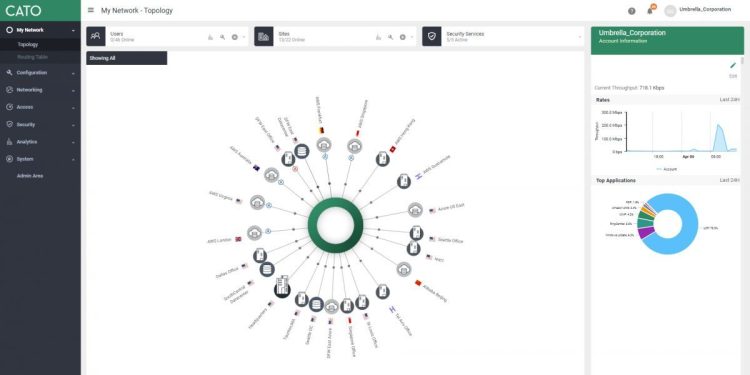Cato Networks has raised $77 million in venture capital as the company expands the reach of its cloud-based security service. Lightspeed Venture Partners led the round, which included participation from Aspect Ventures, Greylock Partners, Singtel, and U.S. Venture Partners (USVP), as well as cofounder and CEO Shlomo Kramer.
Founded in 2015, Cato has developed a cloud platform that centralizes the management of security across a company’s various networks and remote access points. The goal is to make operations more secure, easier to monitor, and faster to scale when necessary.
While Cato had been building the service for several years, its belief that companies would need greater security and flexibility for remote workforces has proved prescient amid the COVID-19 outbreak, as customers around the world closed their offices and employees began working from home.
“This is exactly the use case that we are facing right now,” Kramer said. “We’ve built a global network to serve hundreds of thousands of mobile users. And then suddenly, all of our customers needed to completely [change] the way they work. For our customers, this was simply a flip of the switch.”
June 5th: The AI Audit in NYC
Join us next week in NYC to engage with top executive leaders, delving into strategies for auditing AI models to ensure fairness, optimal performance, and ethical compliance across diverse organizations. Secure your attendance for this exclusive invite-only event.
Cato is working in the emerging secure access service edge (SASE) field. The category refers to companies offering products that address the security of a company’s network, as well as its endpoints through a single, unified system.
Traditionally, if a company wanted to physically reshape how and where employees were located, they would need to go through the cumbersome process of physically deploying security hardware appliances and software.
But Cato’s platform sits between the various cloud services a company might use, its physical branch offices and datacenters, and wherever an employee happens to be working. By routing all traffic through that centralized hub, the company can rapidly optimize security as the number and types of access points change and the company adds additional applications, Kramer said.
The latest round of funding comes just a little more than a year after Cato raised $55 million, and the company has now raised more than $200 million in venture capital. Based in Tel Aviv, Cato is part of Israel’s booming cybersecurity ecosystem.
The company intends to use the money to expand its sales and marketing efforts, as well as continuing to build out its own infrastructure in order to pursue deals with much larger customers. It’s also working on additional services it can offer customers who have already adopted its basic security platform.
Kramer said Cato began raising the latest round of funding in January before the scope of the pandemic was clear. At the time, the company was simply looking to take advantage of a general shift toward more remote and cloud-based working.
“Obviously, the short term is difficult, and we are happy to help in the short term,” Kramer said. “But the question is the longer term. This is really the architecture of the future. One thing about this situation is that it may be accelerating digital transformation. I think we are an enabler of that digital transformation.”


